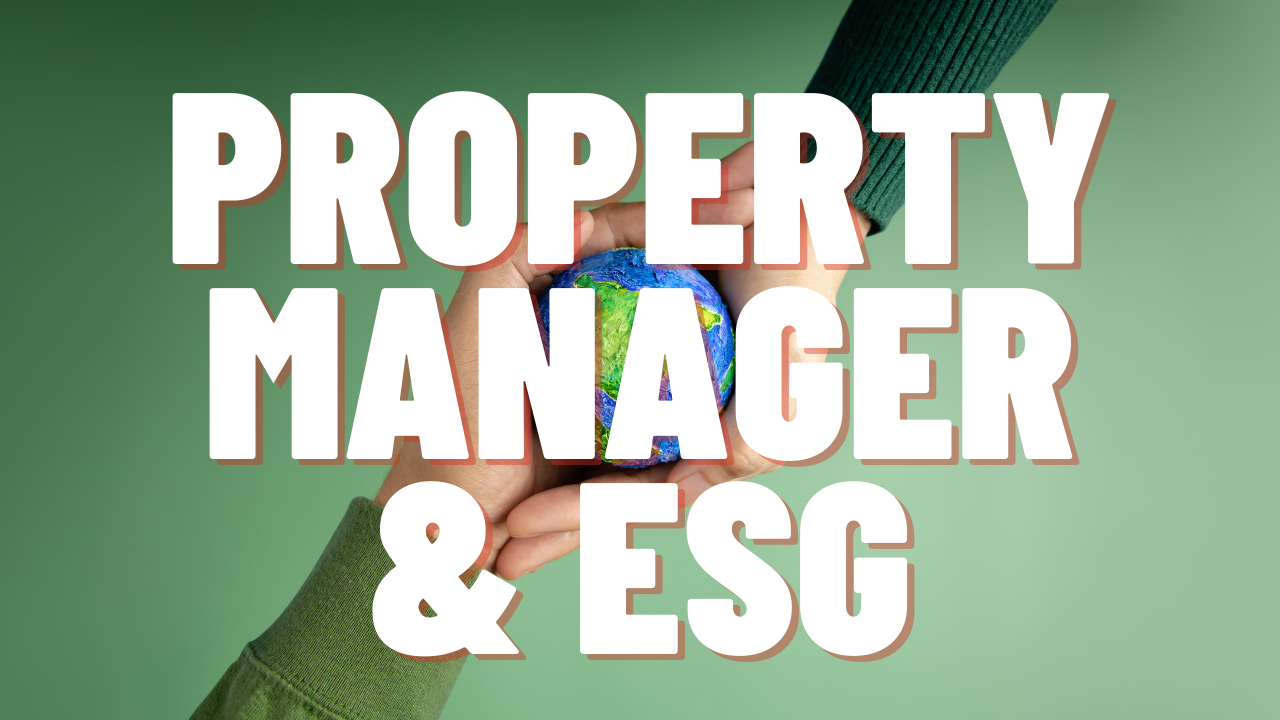Property manager has critical role in ESG

Environmental Social Governance (ESG) is rapidly gaining importance among real estate companies. But the property sector still has a long way to go when it comes to collecting ESG information. The property manager, who deals with buildings on a daily basis, has a crucial role to play to realise impact in actual steps in sustainability, health, well-being and safety in the built environment.
Anno 2022, many owners and tenants of office, residential or commercial buildings do not know how much energy they actually consume. To collect such data reliably, CO2 emissions need to be measured, meters converted and smart metering systems installed. Before this happens, it is difficult to reach agreements on this, such as green leases. After all, what good is a green lease that limits, say, CO2 emissions and a tenant's energy and water consumption, if the tenant does not even know their own consumption?
Sustainable certification is now well established, but until now it was mainly a snapshot at the completion of a (renovated) building. That is changing rapidly, as market standards like BREEAM, WELL and Fitwel and benchmarks like GRESB more often demand ESG evidence. The encroaching ESG regulation from Europe (the EU Taxonomy) adds to this. Those who claim to have an ESG-proof fund will have to prove it ever harder. Regulators are increasingly cracking down on greenwashing.
More willingness to share ESG information
Greater insight into actual energy consumption has always been a thorny issue between tenant and landlord. But with energy costs skyrocketing, the willingness of tenants, for example in the housing market, to give the landlord insight into energy consumption has increased significantly. As long as there are actual energy-saving measures in return.
And small, inexpensive measures can make a big difference, such as LED lighting, water-saving taps or sensors that measure the quality of air in the building. Only active dialogue can ensure that these are implemented.
Out of sheer necessity, the topic of ESG has received considerable backing. The corona pandemic stressed the focus on health and safety. And with denu exploding electricity and heating costs, individuals and companies cannot help but look at their own consumption. However, some investors continue to take a rather casual approach to the issue. The perception still prevails that a lot can be achieved with a few measures. But in fact, long implementation processes are needed before a positive effect can actually surface. And that's where the role of property management comes in.
The 'S' as a differentiator
Social sustainability - the 'S' in ESG - should also not be overlooked. Office tenants need to focus more than ever on employee satisfaction and attracting talent. In residential complexes, tenants find sustainability, health and safety more important than ever. Property management has a central role to play here when it comes to tenant satisfaction, communication and stakeholder engagement. In this way, the property sector can go public and show that it takes social responsibility seriously.
Such unique selling points can be generated in all areas of ESG. Or to put it another way, these days everyone wants 'green' and health-promoting real estate. Those that can actually offer that are well positioned, even in the 'perfect storm' that is now sweeping over the economy.
Those who want ESG should invest in property management
Those who want to consistently apply ESG criteria and put them into practice must invest in property management. However much fund managers focus on sustainability, the real steps in ESG are ultimately the domain of the property manager. Only when property is managed 'ESG-proof' and the built environment is used in a sustainable, healthy and safe manner can real impact be achieved. And in this respect, the smart property manager is best one step ahead of tomorrow's regulations - rather than running after them.

